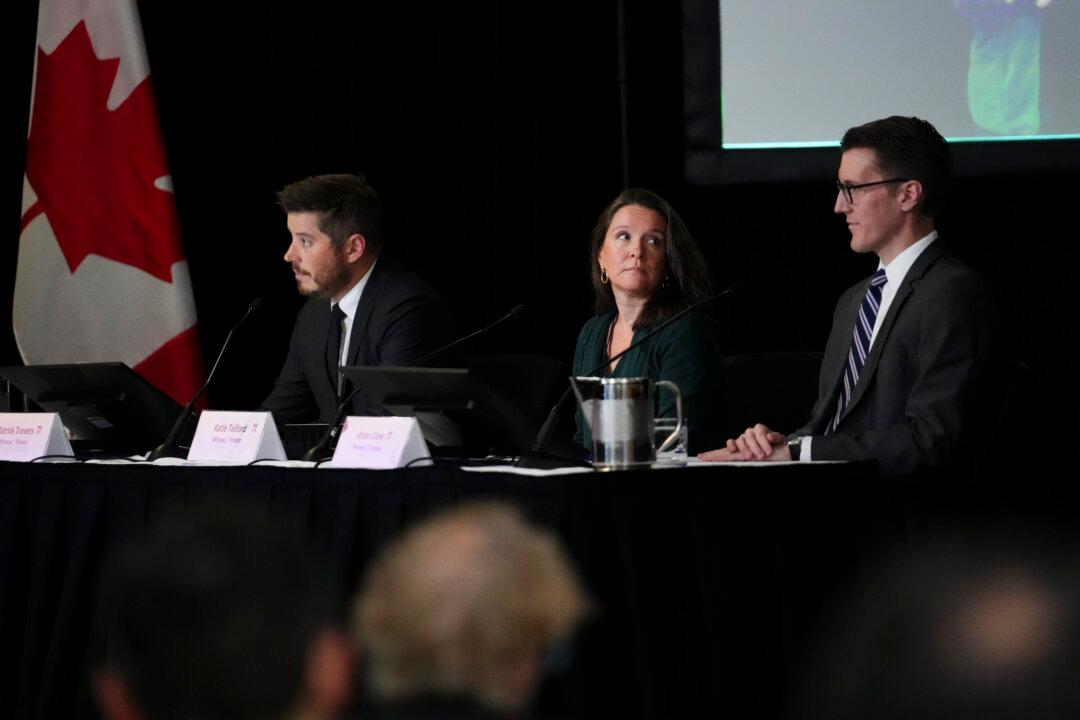Top advisers in the Prime Minister’s Office were questioned about their knowledge of a delayed surveillance warrant on an Ontario politician and denied any involvement in the matter as they testified at the Foreign Interference Commission.
“None of us in the Prime Minister’s Office are involved in anything to do with warrant processes or to do with warrants,” the prime minister’s chief of staff Katie Telford said on Oct. 15.





